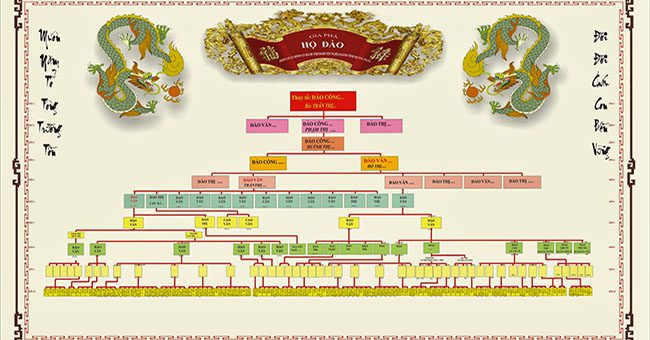Are you a human resource manager and are you facing “difficult” employees in the company? Are you worried that these employees will affect work performance, reputation and cause conflicts in the business? If you are facing these problems, you do not need to worry. In this article, we will provide you with effective and scientific experiences in managing “annoying” human resources.
EXPERIENCE IN MANAGING “ANNOYING” PERSONNEL IN BUSINESS
- Identify the cause of the discomfort: You need to find out if your unpleasant employees are affected by personal, work or environmental factors. You also need to distinguish between difficult employees due to personality and difficult employees due to situation. This will help you have the appropriate handling plan for each case.
- Communication and listening: You need to communicate directly, clearly and respectfully with difficult employees. You need to avoid criticizing, judging or blaming them. You need to listen and understand their views, desires and needs. You need to create a comfortable space for them to express their opinions and feelings.
- Offer solutions and expectations: You need to offer specific and reasonable solutions to help the unhappy employee improve the situation. Clearly state your expectations and goals for them; monitor and evaluate the results of the solutions you have proposed; and reward or criticize them when you see their progress or regression.
- Create a positive working environment: You need to create a disciplined, fair and harmonious working environment for all employees. You need to encourage cooperation, communication and mutual support among team members. You need to organize team building activities to enhance solidarity and cohesion among employees.
THE ART OF HUMAN RESOURCES MANAGEMENT WITH “UNCOMFORTABLE” PERSONALITIES
Employees with arrogant personalities

Employees with a proud personality are often arrogant, self-righteous, and do not listen or cooperate with others. They can cause problems at work, such as conflicts, poor performance, lack of team spirit, etc. Managing employees with a proud personality requires patience, flexibility, and tact.
- Be patient with them: Understand that narcissistic employees may not realize the negative impact their behavior has on others and their work. Avoid overreacting, criticizing, or judging them, and stay calm and respectful.
- Be open and responsive: Communicate clearly, transparently, and directly with narcissistic employees. Listen to and understand their perspectives, wants, and needs. Give helpful feedback, praise them when they do well, and point out areas for improvement when they do wrong.
- Provide clear work direction: It is necessary to define goals, expectations and work standards for employees with arrogant personalities. You need to explain to them the reasons and meanings of those requirements, monitor and evaluate work results fairly and objectively.
2. Passive employees
Passive employees are those who lack creativity, initiative and responsibility in their work. They often just follow orders, have no opinions of their own and do not contribute to the development of the business. Passive employees can cause problems such as poor performance, difficulty in communication, lack of team spirit, etc. HR managers should:
- Set clear goals and results: Define goals, expectations and work standards for passive employees. Give reasons and meanings to the tasks to be followed and evaluate their work results in a fair and objective manner.
- Create motivation and encouragement: Create motivation, reward, welfare and recognition for their achievements. In particular, it is necessary to encourage them to promote their strengths and improve their skills.
- Communicate and listen: HR managers need to communicate clearly, transparently and respect the opinions of passive employees. Understand the wants and needs of employees and create a comfortable environment for them to express their opinions.
- Empowerment and responsibility: You need to empower passive employees so that they can make their own decisions and solve problems at work. Avoid interfering too much in the details of their work, helping them realize that their role and influence in the success of the business.
- Build a positive working environment: You need to create a disciplined, fair and harmonious working environment for all employees. You need to encourage cooperation, communication and mutual support among team members. You need to organize team building activities to enhance solidarity and cohesion among employees.
3. Employees who often blame

Employees who often blame are those who often do not take responsibility for their mistakes, but always find ways to blame others or circumstances. They can cause problems such as loss of trust, loss of credibility, loss of focus, loss of motivation, etc. For employees who blame, HR managers need to:
- Create a culture of responsibility in the company: You need to build a culture in which everyone knows that they are responsible for what they do, and no one is allowed to blame others. Create clear standards and expectations for employees, and encourage them to solve problems themselves instead of avoiding or complaining. You need to respect and recognize those who have a high sense of responsibility, and criticize or deal with those who have a habit of blaming.
- Provide feedback and solutions: Provide timely, accurate, and objective feedback to blame-shifting employees. Point out their mistakes clearly and decisively, without giving them the opportunity to justify or distort the truth. Help them recognize the consequences of blame-shifting, and suggest solutions to correct or prevent recurrence.
- Encourage self-criticism and self-correction: You need to encourage blame-shifting employees to self-criticize and self-correct when they recognize their mistakes. You need to create a work environment and incentives where people can admit their mistakes without fear of criticism or punishment. You need to praise and encourage people who have a positive attitude and are willing to learn from their mistakes.
Each employee is a link for the business to operate successfully. Therefore, human resource management is always an important task for the business. Hopefully through this article, administrators will have more experience in effectively managing “annoying” human resources.
>>>Don’t miss:
5 Ways to effectively manage remote human resources for businesses
Revealing the human resource management style of leaders with VISION
Contact ADSMO now – Specializing in providing customized business software solutions, consulting on building digital platforms with the mission.
TOTAL solutions, BREAKTHROUGH development – Optimize COSTS – Increase PROFIT. We are committed to bringing you:
- Management solutions tailored to your business needs.
- Easy-to-use and effective systems.
- Professional customer support services.
Contact ADSMO now for free consultation:
- Address:8th Floor, HD Tower Building – 22 Pho Moi – Thuy Nguyen Ward – City. Hai Phong
- Website: https://adsmo.vn
- Email: info@adsmo.vn
- Hotline: 0356 105 388














